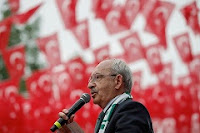Amid global uncertainty and domestic anxiety over the cost
of living, the next president of Singapore must be a unifying figure in whom
Singaporeans have confidence. The job of the head of state has not changed much
over the years, but people have come to expect more.
Observers say the election, which is called on a regular
six-year cycle, will likely be held close to the deadline in September 2023,
after the National Day celebrations – and after the National Day Rally speech
by Prime Minister Lee Hsien Loong, usually in the second half of August.
This would be a time when issues and challenges confronting
Singapore, as well as a sense of national identity and unity, would be at the
forefront of people’s minds.
Dr Gillian Koh, deputy director of research at the Institute
of Policy Studies, said that the conditions today are similar to those in
2011.
Then, people felt that the world had seen an end to the
“long boom” post-World War II and markets were anticipating another crisis in
the United States and Europe which could affect Asia.
She noted that at the time, the candidate who eventually
became president – former deputy prime minister Tony Tan Keng Yam – said he
envisaged that the Government would make contingency plans, and gave the
assurance that he would protect the national reserves with great care.
Similarly today, Singapore and the world face a tangled web
of challenges – from US-China rivalry and the Russia-Ukraine war to
disruptions to the global trade order – that PM Lee laid out in his speech
during the debate on the President’s Address in April.
Hence, the upcoming election will involve choosing a
candidate with experience, and who has a calming and steady temperament in
crises, said Dr Koh.
National
University of Singapore (NUS) sociologist Tan Ern Ser said it is not the
president’s responsibility to directly address problems such as the economy and
inflation, or geopolitical challenges, as these are the responsibilities of the
prime minister and his Cabinet.
Instead,
he said, the president should rally Singaporeans to stay socially cohesive and
resilient amid external or internal threats, while keeping an eye on how the
reserves are being used.
He added that the president could also use the prestige and
symbolic power of the presidency to champion worthy causes that would enhance
the well-being and unity of Singaporeans.
Dr Leong Chan-Hoong, head of policy development, evaluation
and data analytics at research consultancy Kantar Public, said that in a
politically divided world, the next president should also ideally have good
working knowledge of foreign policy and international relations.
By
design, the president has no executive, policymaking role. This remains
the prerogative of the elected government that commands the majority in
Parliament.
Does it mean, therefore, that the president’s role is simply
rubber-stamping?
President Halimah Yacob’s tenure has shown otherwise, said
political analyst and Nanyang Technological University (NTU) associate lecturer
Felix Tan.
He said there has been some evolution in the “soft power
aspect” of the role, with the President showing that she can still be involved
in engaging with Singaporeans and championing certain social causes.
For example, she has spoken up on violence against
women and the need to ensure a broader and more open meritocracy for all
Singaporeans.
Courtesy: The Straits Times






